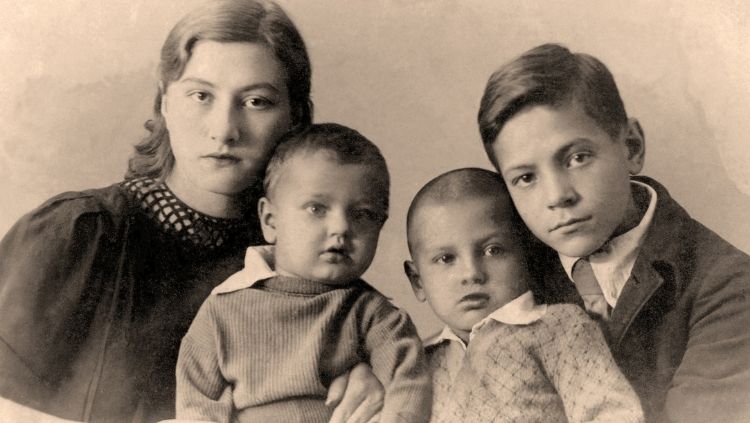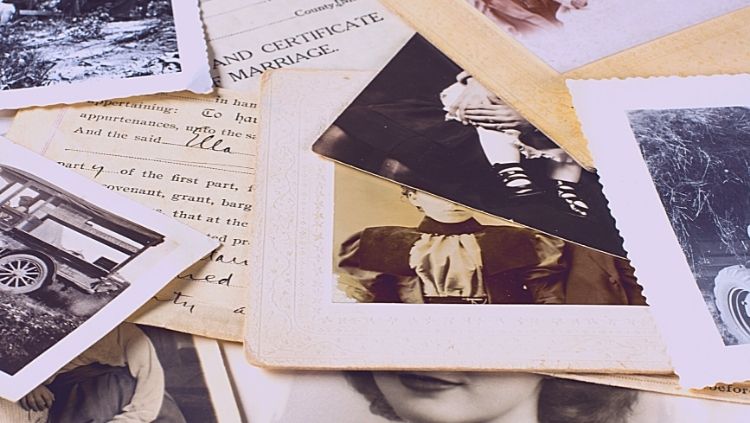
When I traveled to Northern Ireland my relationship with my long-deceased grandmother changed. I came to understand her better and, at the same time, I came to understand myself better as well. This is what ancestry travel does. It helps you discover family heritage, your heritage, and how you became who you are.
Ancestry travel is simply taking a trip to explore places that are significant to your family history. Seeing these places firsthand, living in the geography, and speaking to people who know the history, enriches one's understanding of family history. It gives family stories context.
I had been to the ‘old country' before. But on this trip, there was no family to visit as the generations I knew well had all passed on. I had no family in tow. On previous visits I had brought my husband and children along. Yes, this time I went solo, and it was a quite different experience.
As I traveled, I told a number of people about my Northern Irish heritage. Every time I told the story of my grandmother and saw the responses to the struggle that was her life, my relationship with her shifted somewhat.

Redefining Personal History by Understanding Family History
My grandmother's story, as I know it, is that she went to work in the linen mills at the age of 10. By the time she was 16, her parents had separated. The three sons went to live with their mother and the three girls stayed with their father. At that point, my grandmother was to manage her father's household and raise her sisters: Elizabeth, six; and Annie, four. (Annie died at at the age of eight of the Spanish flu.) By the time she was 26 and Beth was 16, my grandmother felt she had done her duty. In the attitude of the times, she was a spinster, too old to get married. However, she was also not willing to spend her life in the linen mills. With her father's permission she emigrated to Canada to be a domestic.
This was the simple story I had grown up with. She was a stoic woman, so no drama was attached to it. These were just the facts of her life.
But as people listened to her story, people who were far closer than me to the meaning of working in the linen mills, and to what a divorce would have meant in early 20th-century Belfast, they were filled with compassion. It was their response that changed my relationship with her.
My grandmother was stern, not warm and cuddly, but she was a survivor. I always considered her strong and now I really understood why she had to be. She had worked in the mills at a young age. She was abandoned by her mother. She had nursed her dying sister. She had bravely emigrated to Canada with just one friend.
By positioning my grandmother's personal story within the context of Northern Ireland's history, and with the assistance of people more sensitive to that history, I returned home with a new understanding of my grandmother, my mother, and myself.

Ancestry Travel Tips: 3 Steps to Understanding Your Family History Better
There are two sides to ancestry travel: going through documents and gathering the details of family history and understanding the social, historic, and geographic context of your family history.
Here are three steps to help you get the most out of ancestry travel
- Gather the family history that is around you.
- Survey your family. I first did this when I was 17. It involved several copies of a letter, mailing the letters to my father's 9 siblings and receiving their replies, also by mail. It was laborious. Now, you can create a survey on Google Forms or Surveymonkey.com, send the link to family, and receive responses that are kept neatly in the survey response spreadsheet. You'll be surprised. You'll receive accurate information and varying stories of family folklore.
- Gather your documented heritage. Pull together photo albums, scrap books, family bibles, and other resources where your family history is stored.
- Write down family stories. Whether accurate or not, the stories that grandparents, uncles, and aunts tell are windows into the shared experience of the family, its culture and values.
- Connect with other genealogy enthusiasts. Ancestry.com is an excellent tool in which to store the information you collect. It is also an important resource of new information as you connect with distant relatives who are doing their own research. This is one way your family tree will grow.
- Use country-specific research sites. There are many sites that will help you explore your family's genealogy, the specifics of your family history. Simply search “family history research” and either the culture or the country on which you want to focus. Here are a few examples from this Google search method: Library of Congress African American Genealogical Research, The French Genealogy Blog, National Archives of Hungary, IrishGenealogy.ie, the Ancestors Portal for Italy, the Koseki for Japan.
- Plan your research at your destination. Archives, cultural societies, religious institutions, and libraries are all great places to do research at your destination. You may have to make appointments to visit these places, so check their websites before leaving and make your plans accordingly.
- Feel your ancestor's experience. This is, for me, the most rewarding part of ancestry travel. To see the landscape, experience the climate, understand the social, political, and economic history, and to integrate it all into your knowledge of your family's history, helps to make your family make sense. Further, speaking with people closer to all these factors, who have personal, long-term experience with them, will reveal different perspectives on your family history, just as that experience did for me.
Understanding your family history is about understanding you. Family history affects both a person's nature and how they were nurtured. It can answer nagging questions about life, strengthen personal resilience, provide a new sense of belonging, and expand your sense of self-worth. Understanding personal genealogy and family heritage is enriching.

